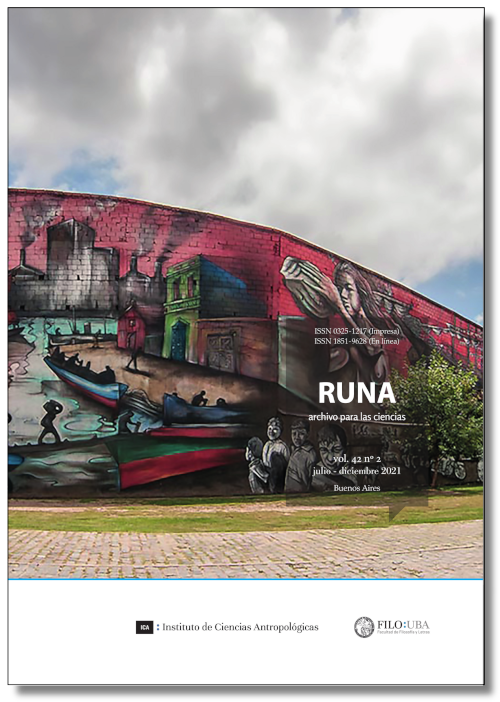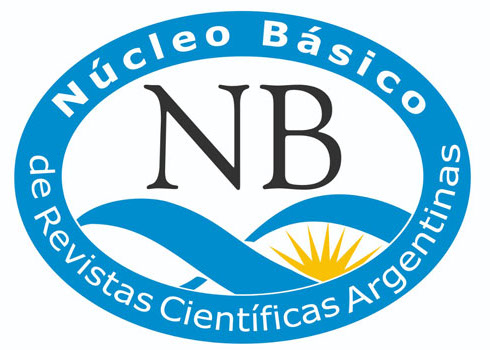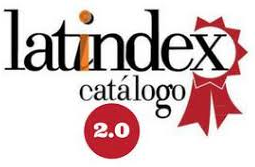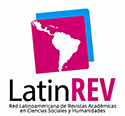Shadow of forgotten ancestors
Reflections about the origins of etnology and etnography in the work of Han Vermeulen
Abstract
The following work arises from a dialogue with the work of Han Vermeulen in relation to the origins of anthropology. For this author, the origin of ethnology, as one of the roots of sociocultural anthropology, is the product of a discipline that had reached its maturity at the end of the 18th century, emerging from field work carried out in Russia and the North. from Asia, mainly by scholars from the University of Göttingen. The thesis proposed by Vermeulen points to a historical review of the origins of anthropology, opposing the traditional and more widespread vision, which gave birth to the discipline towards the end of the 19th century with the conformation of the evolutionary paradigm. This article takes a tour of this work and presents some critical notes on the arguments and conclusions defended by the author. It also highlights the value of this type of reflections to have a greater understanding of the anthropological discipline as a historical product and the recognition of peripheral disciplinary traditions that are often not recognized in canonical traditions.Downloads
References
Alymov, S. y Sokolovskiy, S. (2018). The International Encyclopedia of Anthropology. John Wiley & Sons. doi: https://doi.org/10.1002/9781118924396.wbiea2360
Barth, F., Gingrich, A., Parkin, R., y Silverman, S. (2010). One discipline, four ways: British, German, French, and American anthropology. University of Chicago Press, Chicago.
Boas, F. (1904). The History of Antropology. Science, 20(512), 513-524. doi: https://doi.org/10.1126/science.20.512.513
Bunzl, M. (1996). Franz Boas and the humboldtian tradition. En G. W. Stocking (Ed.), Volksgeist as method and ethic essays on Boasian ethnography and the German anthropological tradition (pp. 17-78). Winsconsin University Press, Madison.
Chakrabarty, D. (2008). Provincializing Europe: Postcolonial thought and historical difference (Reissue, with a new preface by the author). Princeton University Press,Princeton, NJ
Figal, S. E. y Larrimore, M. J. (Eds.). (2006). The German invention of race. Nueva York: State University of New York Press.
Kerimova, M. M. (2011). Formation of Russian Ethnography (1750-1850). Traditiones, 119-136. doi: https://doi.org/10.3986/Traditio2011400208
Krotz, E. (2004). ¿Ciencia normal o revolución científica? Notas sobre las perspectivas actuales de la antropología sociocultural. En A. Rosato y M. Boivin (Eds.), Constructores de otredad: Una introducción a la antropología social y cultural (pp. 34-47). Antropofagia, Buenos Aires.
Lakatos, I. y Lakatos, I. (1999). The methodology of scientific research programmes. Cambridge University Press, Cambridge.
Lins Ribeiro, G., Escobar, A., Barragán, C. A. y Restrepo, E. (2008). Antropologías del mundo: Transformaciones disciplinarias dentro de sistemas de poder. Envión Editores, Popayán, Colombia.
Palerm, A. (2004). Historia de la etnología: Tylor y los profesionales británicos. Guadalajara: Instituto Tecnológico y de Estudios Superiores de Occidente de la Universidad Iberoamericana.
Sagan, C. y Druyan, A. (1993). Sombras de antepasados olvidados. México DF: Planeta.
Shimkin, D. B. (1990). Siberian Ethnography: Historical Sketch and Evaluation. Arctic Anthropology, 27(1), 36-51.
Sokolovskiy, S. (2017). Anthropology in Russia: Tradition vs. Paradigm Shift. En A. Barrera González, M. Heintz, y A. Horolets (Eds.), European anthropologies. Nueva York: Berghahn Books.
Stagl (1998). Rationalism and Irrationalism in Early German Ethnology. The Controversy between Schlözer and Herder, 1772/73. Anthropos, 93, 521-536.
Stocking, G. (1968). On the Limits of ‘Presentism’ and ‘Historicism’ in the Historiography of the Behavioral Sciences. En Race, Culture and Evolution. Essays in the History of Anthropology (pp. 1-12). Chicago: The Free Press.
Stocking, G. (1971). What’s in a Name? The Origins of the Royal Anthropological Institute (1837-71). Man, 6(3), 369. doi: https://doi.org/10.2307/2799027
Stocking, G. W. (1983). The etnographer´s magic. En Observers Observed: Essays on Ethnographic Fieldwork (History of Anthropology, Volume 1) (pp. 70-120). University of Wisconsin Press, Madison.
Vakhtin, N. (2008). Transformaciones en la antropología de Siberia: Una perspectiva desde adentro. En G. L. Ribeiro, A. Escobar, C. A. Barragán, y E. Restrepo (Eds.), Antropologías del mundo: Transformaciones disciplinarias dentro de sistemas de poder (pp. 67-90). México DF: Centro de Investigaciones y Estudios Superiores en Antropología Social (CIESAS).
Vermeulen, H. F. (1988). Het ontstaan vab de Volkenkunde, ca 1770 in Göttingen (tesis de maestría). Universidad de Leiden, Leiden, Países Bajos.
Vermeulen, H. F. (1992). The emergence of ethnography ca. 1770 in Göttingen. History of Anthropology Newsletter, 2(19) 6-9.
Vermeulen, H. F. (2006a). The German invention of völkerkunde: Ethnological discourse in Europe and Asia, 1740-1798. En S. E. Figal y M. J. Larrimore (Eds.), The German invention of race (pp. 123-146). Nueva York: State University of New York Press.
Vermeulen, H. F. (2006b). The German ethnographic tradition and the American connection. History of Anthropology, 33(2), 9-14.
Vermeulen, H. F. (2008). History of Anthropology. University of Leiden, Leiden.
Vermeulen, H. F. (2015). Before Boas: The genesis of ethnography and ethnology in the German Enlightenment. Nebraska: University of Nebraska Press.
Vermeulen, H. F., y Roldan, A. A. (1995). Fieldwork and Footnotes: Studies in the History of European Anthropology. Londres: Routlege.

Runa, archivos para las ciencias is a publication of the Instituto de Ciencias Antropológicas, Facultad de Filosofía y Letras, Universidad de Buenos Aires and is distributed under a Creative Commons Attribution 4.0 International License.
Runa maintains its commitment to the policies of Open Access to scientific information, considering that both scientific publications and publicly funded research should circulate on the Internet freely, free of charge and without restrictions.
The contents and opinions expressed in published articles are the sole responsibility of their authors.



















